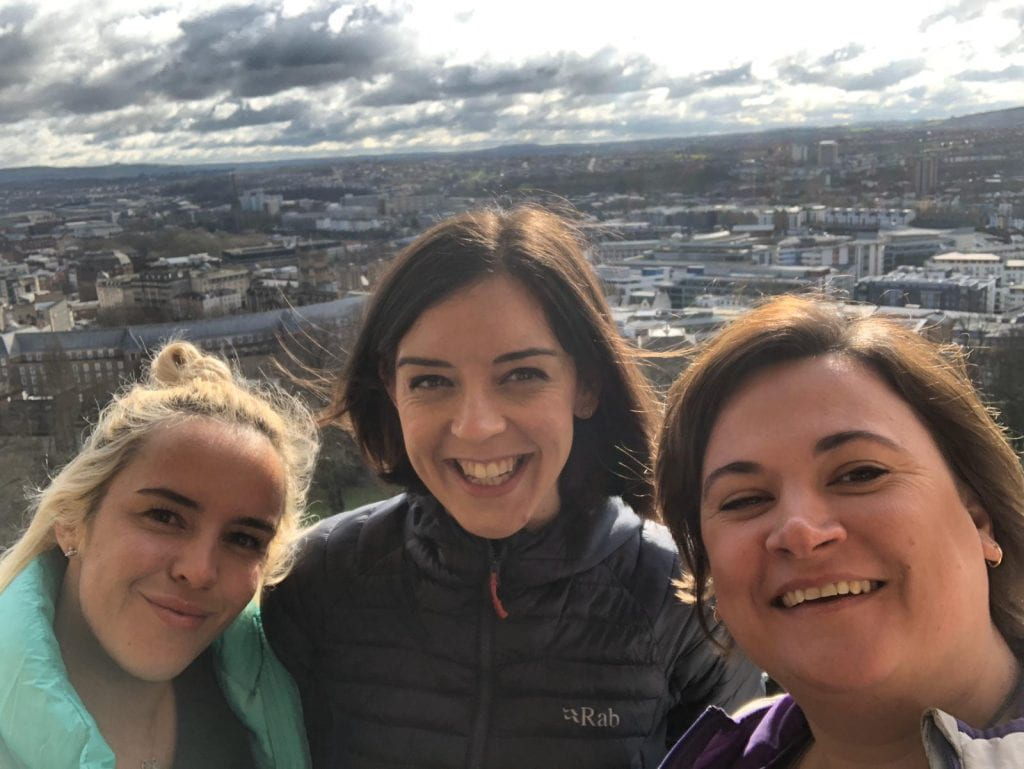We caught up with Lucy Bull; recent MSc Nutrition, Physical Activity and Public Health graduate to get some top tips on how to get the most out of your postgraduate study…
Hello there, would you mind telling me a little bit about yourself?
“I’m Lucy, I’m a 40-year-old mum of three children and I NEVER thought I could do an MSc! I run a nursing home in Devon with my mum but wanted to build my own expertise to support my work. The umbrella of Nutrition, Physical Activity and Public Health seemed to be a good fit, serving as a platform for future specialism. It seemed like a good course that would fit alongside the expertise of our nurses in the home.”
Why did you choose University of Bristol, for your studies?
 “My background is the arts; I worked for the BBC for many years. This MSc meant I could commute from Devon, retrain my artsy brain into a science one and gain expertise. My love of Bristol now encompasses a deep loyalty to the University of Bristol, for its amazing facilities, sublime course content and world class teaching staff.”
“My background is the arts; I worked for the BBC for many years. This MSc meant I could commute from Devon, retrain my artsy brain into a science one and gain expertise. My love of Bristol now encompasses a deep loyalty to the University of Bristol, for its amazing facilities, sublime course content and world class teaching staff.”
Talk about a project/initiative you’ve got involved in whilst studying here?
“My dissertation dovetailed my media experience with my newfound scientific thinking, as I analysed the media coverage of recent physical activity guidelines. I discovered that there is a real lack of confidence in media skills within academia. Because this MSc is so good at developing research skills and scientific writing, I now feel more competent at searching out niche areas of research.”
How has completing your MSc helped with your career or further education?
“My knowledge base is much stronger, and I can research key topics exceptionally quickly. This has been crucial during Covid to pull together evidence-based guidance for the nursing home. I can speak more authoritatively to the team and they have confidence that I know what I am talking about!”
And finally, do you have any advice or tips for people who are thinking about undertaking a Masters, or continuing their education?
“Yes! I wrote a twitter thread about it. I felt a bit at sea when I started and wanted to help others feel less lost.

- Try and find your people, whether you are learning online or in person. Reach out, through whatsapp or uni email; most will be happy to hear from a friendly soul. Be kind to the silent ones.
2. Find your lecturers on Twitter, learn who they follow and why. #academictwitter is a fascinating, useful rabbit hole.
3. If you like a lecture, tell the lecturer. You never know when your paths may cross in the future.
4. There are NO stupid questions. Every answer helps someone.
5. Embrace statistics and if you don’t understand a stat, don’t use it. Push your limits of statistical comprehension. Chances are you’ll understand more than you thought.
6. Get to know your librarian, use their knowledge. Learn Endnote or Mendeley and their capacity to help your referencing. Choose one and learn it.
7. Get to grips with the Assignment template in Word and how to use it. Do it sooner than later.
8. If you’re new to scientific writing, don’t be scared. There’s a wealth of resources at your fingertips. University of Bristol Study Skills run some incredible courses. Use your personal tutor and always ask for feedback after assignments.
9. You’re about to step into a world of fascinating study led by world experts in their field. Use their intellect, ask questions, don’t let imposter syndrome silence you! Your teachers are clever, brilliant people but above all they are kind and they want you to flourish. This is your springboard, to new friends, jobs and opportunities.”
Thank you Lucy for your wise words! I’m sure this will help maybe new students navigate their way through postgraduate life.
If you are interested in studying a postgraduate degree with us, join us at our Virtual Postgraduate Open Weeks in November.
Click here for more information on MSc Nutrition, Physical Activity and Public Health.
To follow Lucy on twitter click here.


